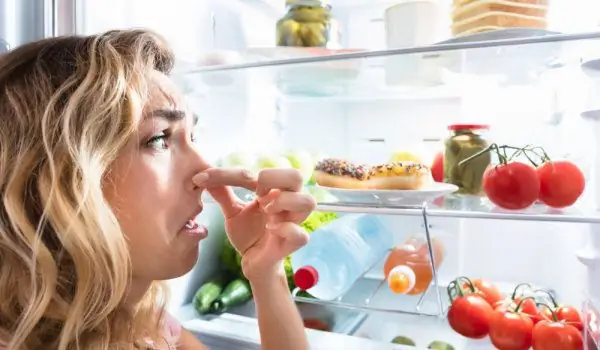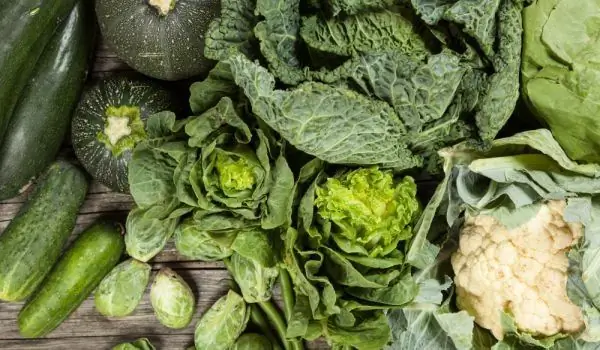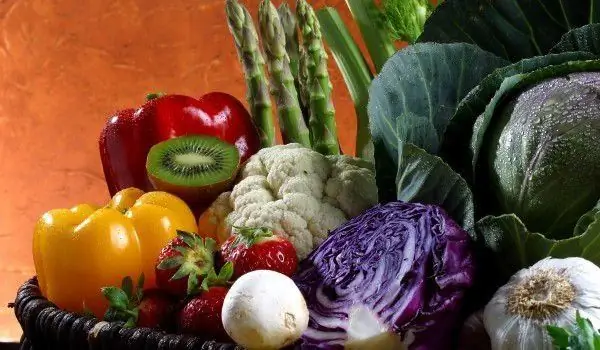2025 Author: Jasmine Walkman | [email protected]. Last modified: 2025-01-23 10:18
To enjoy fresh vegetables all year round, you need to store them in a special way. When stored properly, the valuable substances they contain are not lost.
Most vegetables contain about 75 to 97 percent water, and the loss of at least 7 percent of that water inevitably leads to wilting, so vegetables lose their beautiful appearance and nutritional value.
This also helps the microbes to multiply quickly. In order to store vegetables properly in the winter, you should not randomly store them on the balcony, in the garage, in the basement or in the refrigerator.
First you need to thoroughly inspect them, remove damaged and crushed vegetables. The most popular vegetables are potatoes. They grow in the dark, underground, and it is preferable to store.
If stored incorrectly, the potatoes germinate and the humidity in the refrigerator causes mold to form. Potatoes should not be stored in the light because they turn green, which leads to the appearance of the poisonous substance solanine.
It is best to store the potatoes in the basement at a temperature of 3 to 10 degrees, but if this is not possible, use bags of fabric and paper for storage, not nylon.

Inspect the potatoes from time to time to remove spoiled ones. If you store the potatoes very cold, they will become sweet. Potatoes should not be washed before storage because they will catch mold.
Carrots are very difficult to store because their skin is thin. They are best stored in wooden boxes with dry sand. The box stands on the balcony, in the cold, but at very low temperatures it is wrapped in a blanket or brought home.
If the carrots are not many, they can be wrapped in paper, then in a plastic bag and stored in the refrigerator. Onions and garlic can be stored at a temperature of 0 to 20 degrees, but the higher the temperature, the lower the humidity should be.
At high temperatures, onions begin to take root. It is good to store in braids, pre-dried. Garlic along with onions can be stored on the balcony, in a box wrapped in a blanket.
For storage in the winter, medium cabbages are chosen, which are hung in nets in a cupboard on the balcony. The optimum temperature is from 0 to 1 degree.
Beets and turnips are stored in a box or canvas bag on the balcony or other cool place. Tomatoes are stored well at a temperature of about 0 degrees in the refrigerator, pre-wiped with a napkin.
Recommended:
How To Store Vegetables For The Winter

In addition to freezing vegetables for the winter, store them in a form in which you can use them almost as fresh. In this way, they will retain their properties and will not flake, as often happens when thawing frozen vegetables. Make dried tomatoes in olive oil, which is very popular in Italy.
How To Store Different Vegetables

Vegetables are one of the most useful gifts that nature has given us. They are rich in vitamins and minerals and it is good to consume them both in the warm and cold months. Therefore, it is good to know how to store them for as long as possible.
How To Store Fresh Vegetables - General Rules

There are vegetables that spoil more easily than others. There is a rule that fresh vegetables should be stored in the refrigerator while consumed and served. In practice, there are some vegetables that need to be left at room temperature to avoid the damage that the refrigerator can cause.
Never Store These Fruits And Vegetables Together

If you buy regularly fruits and vegetables , you've probably noticed that sometimes they break down very quickly. You can avoid this by following this tips for intelligent storage of fruits and vegetables . Keep the cucumbers separate Most fruits, such as apples and melons, produce a gas that accelerates the ripening but also spoils of other plant products.
Do You Store Vegetables In Plastic Bags? That's Why You Have To Stop

Despite all the warnings about how harmful plastic bags are to the environment, most of us still use them. They are cheap, easy to use and easily accessible. In reality, they have become so much a part of our daily lives that shopping and storing products seems impossible without them.

